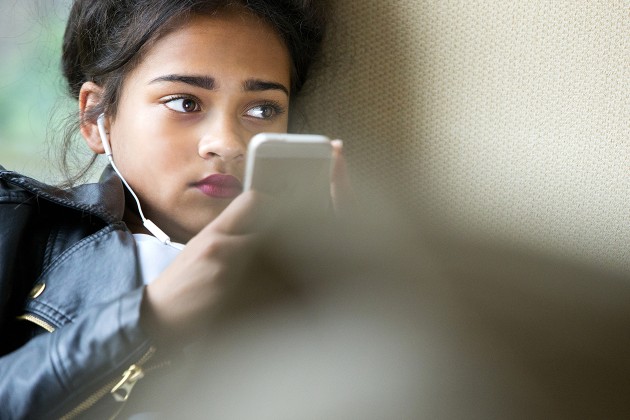Dear Highlights Podcast: Navigating Friendships and Bullying

This Dear Highlights podcast discusses navigating friendships, both the fun and the challenging. Highlights receives more mail about friendship, a vital part of a kid’s social-emotional development, than any other subject.
By making and keeping friends, kids learn important life skills, such as getting along with others and resolving conflicts. Positive interactions with friends help build self-esteem and provide kids with a sense of belonging. In contrast, negative interactions with friends, such as being betrayed or feeling hurt by a friend, can dampen their self-confidence.
Christine French Cully, Highlights editor-in-chief, talks with guest, child psychologist Eileen Kennedy-Moore, PhD, who is the author of Growing Friendships, A Kids’ Guide to Making and Keeping Friends and of Kid Confidence, Help Your Child Make Friends, Build Resilience and Develop Self Esteem. She provides insight to parents on how to navigate the ups and downs of their child’s friendships and offers actionable advice on the best ways parents can help their child.
Christine welcomes Dr. Kennedy-Moore and asks why friendship is such a big part of a happy, healthy childhood. Dr. Kennedy-Moore says friendship is not only a part of childhood, but “it’s the point of childhood.” She explains that through friendships kids learn to get along, navigate conflicts, have fun together, and understand someone else’s perspective. Helping kids make friends can lead them to be happier, more motivated, and better able to deal with stress. “Friendship is key to children developing sense of self,” Dr. Kennedy-Moore explains.
Christine agrees but shares that most of the letters about friendship kids send to Highlights are about feeling like they don’t belong. She shifts the discussion to that aspect of friendship and shares a letter:
A long time ago I had two best friends: Avery and Salah. We hung out a lot until Avery’s other friend Bella came, and I don’t really know Bella. Then they started to spend more time together since they live right next to each other and hadn’t really noticed me. I felt left out. I haven’t seen them for a while. The last time I saw them was at Avery’s grandma’s wedding. I wouldn’t speak to them. Should we stay friends? I wonder if our friendship is over.
Dr. Kennedy-Moore notes that a “friendship breakup for kids is as painful as a romantic breakup is for adults.” Interestingly, she notes, that one quarter to one half of friendships don’t make it the whole school year. However, if a kid loses a best friend, but make another one, they’re fine. It’s important to focus on the feeling of belonging.
Going back to the letter Christine read, Dr. Kennedy-Moore points out it’s about a friendship triad. She says those are tricky because it’s hard to ensure all three of the friendship ties are of “equal strength at all times.” They aren’t as stable as a one-on-one friendship because one person in the triad might feel more connected to one of the people, and the other person might feel left out.
When kids feel left out, Dr. Kennedy-Moore shares, they tend to lash out. She says it’s important to learn how to get past those rough spots because they’re unavoidable.
Christine agrees and asks how parents can coach their kids through these tough times.
The most important thing is to practice empathy, Dr. Kennedy-Moore stresses. She offers some examples for what grown-ups can say:
“You’re feeling really hurt that they did that.”
“It makes you mad that they said that.”
“It’s hard for you when they’re going off together and you don’t see them as much.”
These kinds of empathetic phrases help because kids just want to know that someone understands what they’re going through, she explains.
Dr. Kennedy-Moore stresses, however, not to call the friend’s parent when trying to help. This is something that kids need to learn to figure out on their own, and grown-ups can ask questions to help them think through the conflict. These questions, she notes, could be inquiring about the other kid’s perspective:
“Why do you think she did that?”
“Do you think she was trying to be mean when she did that?”
Another strategy Dr. Kennedy-Moore shares is the “Maybe Game.” She says this is a way to think about all the possibilities for why a friend acted a certain way or did a certain thing:
- Maybe they didn’t realize they were being hurtful.
- Maybe they forgot you had plans.
- Maybe they needed to do something else.
It’s easy to think, “Maybe they did it because they wanted [me] to suffer,” Dr. Kennedy-Moore says. But if they list a lot of other maybes, it can help them realize their friend wasn’t doing something to be deliberately mean.
Dr. Kennedy-Moore says grown-ups can also simply ask, “So what do you think you might do?” This question helps walk a child through scenarios for how the friend might respond. The follow-up question can be, “Is that the result you want?” This is a good way, she adds, for grown-ups to guide kids to positive outcomes.
She notes kids often resolved conflict by separating and then coming back together and being kind. She says kids don’t resolve conflict through negotiating and compromising until they’re around age 19.
Christine asks if there’s a point at which a parent might urge a child to stop trying to repair a friendship or if they should let the child make that decision. Dr. Kennedy-Moore says it’s normally a personal decision for a child, and sometimes kids will “stick with a not so nice friend, just to have a friend.” But adults can use the big context to ask questions like:
- “How do you feel when you’re with that kid?”
- “Have you tried already to make things better?”
- “How does your friend respond when you say something is bothering you?”
If the answer is always “nothing works” or the friend is always mean, it might be good for a parent to say, “I wonder if it’s time to look for other friends.” In this scenario, she notes, it’s important to create opportunities for kids to make new friends because “kids make friends by doing fun things together.”
Christine asks how kids can get past conflict when it’s so prevalent in their friendships. Dr. Kennedy-Moore says sometimes kids will realize a friendship is irreparable or that they need to talk it out. But, she stresses, sometimes it’s important to offer forgiveness to a friend, and hope that they’ll do the same to you. Christine adds, “[Friendship] is about extending grace and believing in second chances.”
Christine poses the final question: “If we truly value children, is there something that we as a society would do differently to support kids in learning to become facile in the language of friendship?”
Dr. Kennedy-Moore answers: “We have to start first with the basic needs. All children need food, housing, safety, and to be cared for so they have the opportunity to think about the very important secondary needs, like friendship and satisfaction. We as a society need to take care of all children, especially those who don’t have any resources. A second thing that’s really important is to encourage the opportunity to make friends… The single best thing parents can do to enrich the friendships of their kids is those one-on-one get togethers, so kids can really get to know each other and have fun together. The third thing that we as a society can do is put an emphasis on empathy…and to really see the world through other people’s eyes and respond in caring ways. Parents need to be good examples of this. What fuels the development of children’s friendships…is an increasing ability to understand someone else’s perspective.”
Our Kindness Collection is designed to help you nurture kindness and empathy while encouraging kids to grow into their best selves: Curious, Creative, Caring and Confident.









